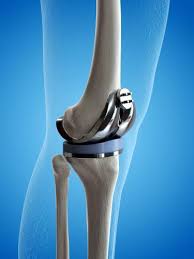
Leg Pain When Lying Down But Not Standing
Leg pain when lying down but not standing is an experience that often leaves individuals perplexed and seeking answers. The mysterious nature of this discomfort can lead to frustration and anxiety as it disrupts the tranquility of restful nights and the ease of daily routines. The impact on overall quality of life is significant, influencing not just physical well-being but also mental and emotional aspects. In this article, we'll delve into the intricacies of leg pain when lying down but not standing, exploring potential causes and offering insights into effective management strategies. By unraveling the complexities of this condition, we aim to empower individuals with knowledge and guidance to reclaim control over their comfort and improve their overall well-being.
The Enigma of Leg Pain When Lying Down But Not Standing
If you've ever wondered about leg pain when lying down but not standingyou're not alone. This specific discomfort can manifest for various reasons, making it essential to understand the underlying factors contributing to this phenomenon.
Muscle Imbalances: Imbalances in muscle strength and flexibility can contribute to leg pain when lying down. Understanding the role of muscle groups in supporting the spine and lower extremities is crucial for pinpointing the source of discomfort.
Nerve Compression: Nerve compression, particularly in the sciatic nerve, can lead to leg pain that is exacerbated when lying down. The sciatic nerve's susceptibility to pressure changes during different positions, possibly causing discomfort during rest.
The way we position ourselves during sleep can significantly influence leg pain. Individuals who experience leg pain when lying down but not standing may find relief by experimenting with various sleeping postures. This may include elevating the legs or using supportive pillows to reduce pressure on sensitive areas.

Nerve Pain In Leg at Night
For many individuals, leg pain when lying down but not standing occurs at night, disrupting sleep patterns. This can lead to a cycle of discomfort, as inadequate sleep may exacerbate pain perception. Understanding the challenges of managing leg pain during sleep is essential for developing effective coping strategies.
Nerve pain in leg at night is a discomfort that can be particularly challenging for those experiencing it. The nighttime exacerbation of nerve pain often adds an extra layer of complexity, disrupting the peacefulness of sleep and affecting the overall quality of rest. The stillness of the night can amplify sensations, making sharp, shooting pains more noticeable and unsettling. Understanding the dynamics of nerve pain, especially when lying down, involves recognizing the potential involvement of structures like the sciatic nerve.
The intricate interplay between nerve compression, sleeping positions, and nocturnal exacerbation forms a crucial part of addressing and managing leg pain when lying down but not standing. In exploring effective strategies for relief, it becomes essential to consider the unique characteristics of nerve pain and tailor interventions to alleviate discomfort during the night, allowing individuals to experience more restful and rejuvenating sleep.
Ergonomic Adjustments: Making adjustments to your sleeping environment, such as using a supportive mattress and pillows, can alleviate leg pain. Ergonomic considerations extend beyond sleep, including proper posture during daily activities.
Stretching and Exercise: Incorporating targeted stretches and exercises into your routine can improve muscle flexibility and strength, potentially reducing leg pain. Consult with a healthcare professional or a certified trainer for personalized recommendations.
If leg pain when lying down but not standing persists, seeking the guidance of a healthcare professional is crucial. They can conduct a thorough evaluation, considering factors such as medical history, lifestyle, and imaging studies, to identify the root cause of the pain.
Leg Pain When Lying Down on Side
Experiencing leg pain when lying down on your side, particularly when it persists while not standing, is a unique challenge that many individuals face. This discomfort can disrupt sleep and daily activities, influencing the overall quality of life. In this article, we'll delve into the intricacies of leg pain when lying down on your side, exploring potential causes and offering insights into effective management strategies. Understanding the nuances of this condition is essential for those seeking relief and a return to restful nights and pain-free days.
When leg pain when lying down but not standing intensifies, it raises questions about the interaction between sleeping positions and musculoskeletal health. Often, this discomfort is linked to factors such as spine alignment, pressure on nerves, or muscle imbalances. The lateral sleeping position can potentially exacerbate issues related to nerve compression or strain on the lower back, contributing to pain sensations.
Nerve pain in the legs at night introduces a unique set of challenges that can significantly impact one's overall well-being. The tranquility of the night can be disrupted by sharp, shooting pains that often intensify during rest. This nocturnal manifestation of nerve pain, while lying down, may be attributed to various factors such as compressed nerves, musculoskeletal imbalances, or underlying medical conditions. The quiet hours amplify these sensations, making the quest for a restful night's sleep more elusive.
Addressing nerve pain in legs at night involves a comprehensive understanding of the intricacies of the pain's origin, exploring effective management strategies, and seeking professional guidance to tailor interventions to individual needs. Managing this aspect of leg pain is not only crucial for physical comfort but also for fostering a sense of peace and well-being during the crucial hours of nightly repose.
Is Sciatica Worse at Night?
The question "Is sciatica worse at night?" often looms as individuals grapple with the challenges of managing this particular type of leg pain. It's not uncommon for sciatica symptoms to intensify during the night, presenting a unique hurdle to a good night's sleep. Sciatica, characterized by pain radiating along the sciatic nerve, can be influenced by body positioning, and the nighttime exacerbation might be attributed to the pressure on the nerve when lying down. This can lead to sharp, shooting pains that disrupt the tranquility of sleep, making it a particularly distressing experience for those affected.
Understanding why sciatica is worse at night involves recognizing the impact of spinal alignment, muscle tension, and the body's response to rest. As individuals lie down, especially in specific positions, the pressure on the sciatic nerve may increase, intensifying the pain. Seeking relief from nocturnal sciatica often requires a multi-faceted approach, addressing factors like sleep posture, targeted exercises, and potentially consulting with healthcare professionals for tailored interventions. By unraveling the mysteries of why sciatica tends to worsen at night, individuals can take proactive steps toward managing their symptoms and reclaiming restful nights.
Why Your Leg Pain Feels Worse When Lying Down?
Experiencing stabbing pain in your legs when lying down can be a perplexing and distressing phenomenon. The exacerbation of leg pain when lying down but not standing, especially when lying down, may be indicative of various underlying issues. One potential culprit is nerve compression, where the weight of the body, coupled with specific sleeping positions, contributes to heightened pressure on nerves. Additionally, musculoskeletal imbalances and conditions such as sciatica may play a role in intensifying the stabbing sensations. Understanding the dynamics of why leg pain feels worse when lying down is essential for effective management and seeking appropriate medical guidance.
Leg Pain While Lying on the Back and Side
Leg pain, whether while lying on the back or on the side, signifies a complex interaction between sleep posture and musculoskeletal health. Lying on the back might alleviate pressure on certain nerves or muscles, while lying on the side may exert strain on the hips or exacerbate conditions like sciatica. Supportive pillows strategically placed between the knees or under the lower back can make a significant difference in promoting better spinal alignment and reducing leg pain during sleep. Exploring various sleep positions and implementing ergonomic adjustments tailored to individual needs can contribute to a more restful night without the discomfort of stabbing leg pain.
Is Leg Pain at Night a Warning Sign of Vascular Disease?
Leg pain at night can sometimes serve as a warning sign of underlying vascular issues. Conditions such as peripheral artery disease (PAD) can cause discomfort and pain in the legs, particularly during periods of reduced blood flow, such as when lying down. If you're experiencing persistent leg pain at night, especially accompanied by symptoms like numbness, tingling, or coolness in the legs, it's crucial to consult with a healthcare professional. Early detection and management of vascular issues are essential for preventing complications and maintaining optimal leg health. Regular check-ups and open communication with your healthcare provider can help identify and address potential concerns related to leg pain at night.
Healthy Turkiye Notes
Leg pain when lying down but not standing can be a challenging condition, but it's not insurmountable. By understanding the potential causes, paying attention to posture, and implementing effective relief strategies, individuals can take significant steps toward managing and alleviating their discomfort.
At Healthy Türkiye, we recognize the complexity of leg pain conditions and are dedicated to providing personalized and compassionate care. If you're ready to address your leg pain and improve your quality of life, reach out to us for support tailored to your unique needs. Remember, the journey to relief begins with understanding and proactive steps towards a healthier, pain-free lifestyle. Leg pain should not limit your potential for a good night's sleep and an active, fulfilling life.




